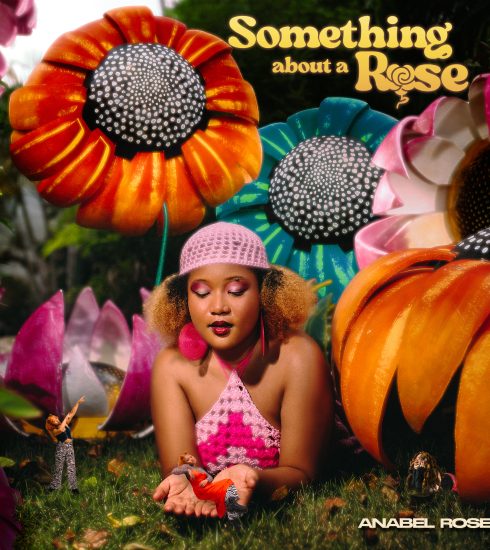Album Review: Baaba J Lumumba St Review
Tales on the Streets of Lumumba
Written By Nana Kojo Mula

As a child, you hear people tell you magic is not real and this writer has always found that statement very laughable because if magic does not exist how do you explain the feeling that consumes a listener when they connect with someone’s music? Magic does exist and there is no greater magician than musicians. The ability to create music that touches a listener to a core and draws out whatever mood to me is magical. I still remember how I felt when I first heard Baaba J’s music. As I sat in my trotro headed home amidst late-night Afienya-Mataheko traffic, my mind kept circling asking myself one question after another after each song on Baaba J’s project. In a time when consumers have questioned the quality of music being churned out of the country, here I am in a trotro listening to a well-curated project from a relatively new artiste who probably does not have the funds to push this project I told myself that as I listened to Lumumba Street by Baaba J.
On the streets of Lumumba, every junction takes through an area of life that Baaba J beautifully describes with her lyricism. The first song on the project Intro takes through the street of love and motivation. The gospel-like song talks about how people can love with all their heart and might, making them go all out for everything and everyone around them. Despite our ability to ruin good things and make people regret doing good, Baaba talks about an individual who continues to do good despite setbacks. She encourages us to continuously bless people with the goodness in our hearts. It is a very bold thing to tell someone when being a good person all the way is never an easy thing.
In the follow-up song Forever, she continues to talk about love but this time takes it from the angle of the person doing the loving. The song sought to take us through the mindset of how someone would continuously give out their love. “Every day you amaze me more, mintumi nk) a day without you. In the crisis, you still have my back. And I don’t need anybody if I got you” The guitar strings and looming piano chords give these words an even deeper feel. For someone to tell you if they have you, they need nobody else, you must have done a number on them. Loving in today’s world has become very conditional but here is Baaba J telling us that no matter what happens, she will stay with this person forever. I too would love to get to this stage of love where I can make these bold statements. In her affirmation of love, all she asks is that this person stays with her and pulls her closer anytime she is pulling away because “Through everything all I feel is you. Even when I’m way down you bring me way up. When life is bitter you be my sugar. And when I mess up you make it better”

On our next stop “Black and White” we see a young girl take a very political stance which we do not typically see in many young artists. In times when we need voices to speak on very pressing issues, Baaba takes the bold step to talk about very “sensitive” issues like racism, discrimination, police brutality and injustice going on around the world. In an interview after the release of the tape, she talked about how the song was inspired by her personal experience of being profiled by the police because of her locs which many people have been victims of. She calls for peace and calm because, at the end of the day, we are all one person. It does not matter our colour, race, or status, we are all the same. Just many people, want to go about their lives without fear of being attacked or harassed by the next man or by the same agencies meant to protect the lives and interests of citizens. On “Play Along” we learn a bit more about Baaba. She takes us through her lifestyle, personality, and goals. She talks about her dreams of making music with Rihanna and clears the air about a few things. She makes it known that for her it is all about breaking the norms and setting new standards. Despite the hindrances, she would encourage you to keep going not play along to the standards that are mostly set to limit your potential.
On arguably the biggest song of the tape “Tomboy”, she closes out on a high note. She gives a self-description of herself some more. For anyone who has questions about who Baaba J is, this is the song you should be listening to more. The songs seem to stem from the numerous questions she receives about who she is. She describes herself as a 5’3 Tomboy with bad eyesight who is unapologetic. I find this song very important because as far as statements go, you will never get a more emphatic statement like Tomboy. As she already said in Play Along, she is not ready to play according to your standards and she is not running away from who she is. If are someone who has a problem with an individual owning up to who they are, you have issues because everyone has their life to live and if you are more concerned about what someone has going for them instead of working on being a better person for you and those around you then you the least said about you, the better. If Asa and Ayisi decided to have a child I am sure she would come out as Baaba J. Her penmanship is one the best you will see around. Her ability to sing in English and Ga is as amazing as her overall delivery of the songs on the tape. The production and sequencing of the song deserve some applause. The intentionality behind the tape is something I highly applaud. Despite being a tape made of an unpopular set of genres in a period when everyone is either, Amapiano, Asakaa or Afro-something here is a Baaba J with something refreshing and exciting for listeners.
Stream Lumumba St HERE
About The Writer
Nana Kojo Mula is a Creative Art Enthusiast who loves to document Ghanaian Creative stories through his writing. Follow him on social media











